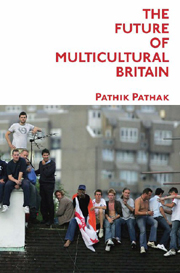Book contents
- Frontmatter
- Contents
- Acknowledgements
- Glossary of Indian Terms
- Introduction
- 1 The Trouble with David Goodhart's Britain: Liberalism's Slide towards Majoritarianism
- 2 Saffron Semantics: The Struggle to Define Hindu Nationalism
- 3 Spilling the Clear Red Water: How we Got from New Times to New Liberalism
- 4 The Blame Game: Recriminations from the Indian Left
- 5 Making a Case for Multiculture: From the ‘Politics of Piety’ to the Politics of the Secular?
- Conclusion
- Index
5 - Making a Case for Multiculture: From the ‘Politics of Piety’ to the Politics of the Secular?
Published online by Cambridge University Press: 12 September 2012
- Frontmatter
- Contents
- Acknowledgements
- Glossary of Indian Terms
- Introduction
- 1 The Trouble with David Goodhart's Britain: Liberalism's Slide towards Majoritarianism
- 2 Saffron Semantics: The Struggle to Define Hindu Nationalism
- 3 Spilling the Clear Red Water: How we Got from New Times to New Liberalism
- 4 The Blame Game: Recriminations from the Indian Left
- 5 Making a Case for Multiculture: From the ‘Politics of Piety’ to the Politics of the Secular?
- Conclusion
- Index
Summary
In its lack of critical spirit, today's multiculturalism is the antithesis of what once could more rightly have claimed the name. The possibility of gaining a critical vantage on one's own society by learning about an alien one […] is almost entirely foreclosed by its complacent cult of difference.
In short, Britain is a community of communities, a community with a collective sense of identity most certainly, but also including within it many communities with a more or less developed sense of their own identity.
The honour of being the British symbol of dignity and poise has been monopolised by half-German nobility for the best part of sixty years, but it seems she now has a rival for her crown. And what an unlikely rival she is. First seen (for most of its viewers) on a reality TV show that had been posting historically low ratings, her bullying at the hands of three D-list celebrities catapulted her to the bosom of the great British public.
Since capturing Celebrity Big Brother's very own crown, Shilpa Shetty has been as lionised outside the house as she was victimised inside it. She was booked to speak at a Commonwealth Day speech in the presence of a host of dignitaries. She has been courted by Tony Blair, lauded by Keith Vaz. The Guardian's Stuart Jeffries gushed that Shetty is no less than the ‘embodiment of civility, articulacy and reserve’.
- Type
- Chapter
- Information
- The Future of Multicultural BritainConfronting the Progressive Dilemma, pp. 158 - 186Publisher: Edinburgh University PressPrint publication year: 2008



